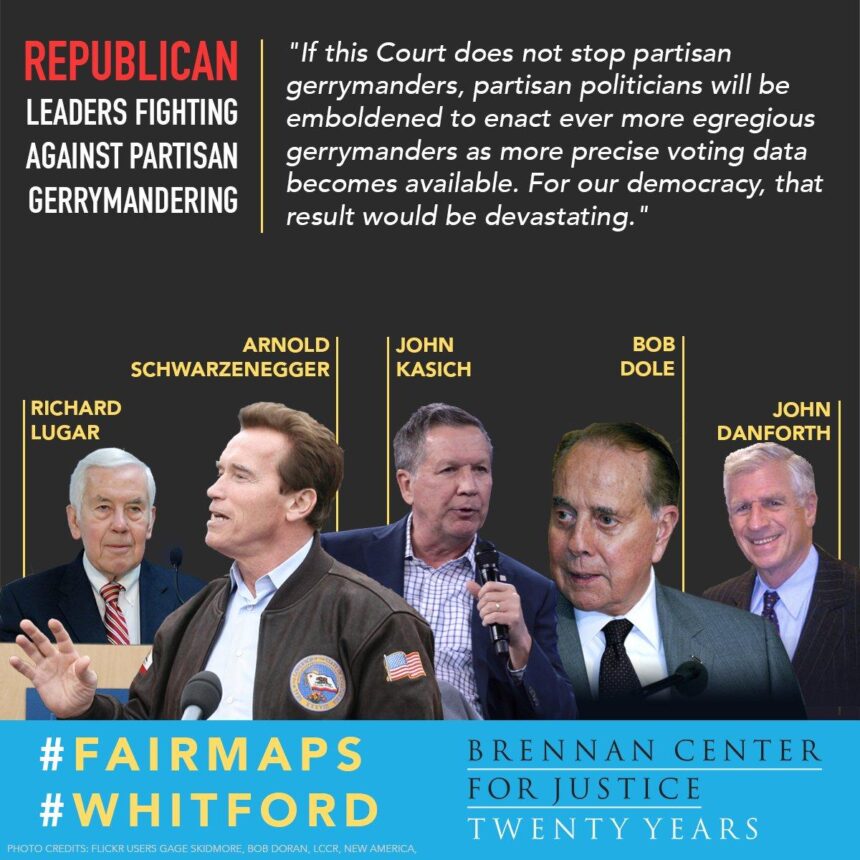Arnold Schwarzenegger Champions Electoral Map Reform for Enhanced Fairness
Arnold Schwarzenegger, renowned for his tenure as California’s governor and his legendary status in Hollywood, is stepping back into the political arena with a renewed mission: to overhaul the redistricting system. His campaign centers on establishing equitable and transparent electoral boundaries that genuinely reflect the electorate’s voice. Utilizing his distinctive influence as a former state leader and public icon, Schwarzenegger advocates for bipartisan collaboration to dismantle gerrymandering, which he calls “a corrosive force that erodes public confidence in democratic institutions.” His platform stresses the vital role of independent redistricting bodies and active citizen participation to ensure districts are drawn fairly and competitively.
Core proposals in Schwarzenegger’s agenda include:
- Creating nonpartisan commissions to minimize political manipulation
- Enhancing public transparency and engagement throughout the mapping process
- Applying rigorous standards to maintain community cohesion and respect natural geographic features
| Proposal | Anticipated Outcome |
|---|---|
| Independent Commissions | Diminished partisan interference |
| Public Forums | Boosted voter involvement |
| Community Integrity | Stronger, unified depiction |
The Detrimental Effects of Gerrymandering on Democracy
Manipulating electoral district lines, known as gerrymandering, continues to undermine democratic principles by enabling political factions to engineer advantages. This distortion compromises the ideal of equal representation and diminishes voter trust, often leading to lower turnout. When boundaries are strategically redrawn to concentrate or fragment specific voter groups, election results frequently fail to mirror the electorate’s true preferences, resulting in an abundance of “safe” districts and a decline in electoral competitiveness.
Key consequences of gerrymandering include:
- Marginalization: Minority populations often find their influence diluted, weakening their political voice.
- Political Polarization: Secure districts encourage candidates with extreme views rather than moderate, consensus-building leaders.
- Reduced Accountability: Incumbents face little electoral challenge, decreasing their responsiveness to constituents.
| Area of Impact | Effect on Electoral Fairness | Long-Term Consequence |
|---|---|---|
| Representation | Disproportionate vote-to-seat ratios | Weakens democratic legitimacy |
| Electoral Competition | Fewer contested races | Declining voter participation |
| Public Confidence | Perceived unfairness in elections | Loss of institutional trust |
Schwarzenegger’s Blueprint for Transparent and Accountable Redistricting
At the heart of Schwarzenegger’s reform initiative is the creation of an independent, bipartisan commission responsible for drawing electoral maps, effectively removing incumbent politicians from the process. This strategy aims to restore faith in the system by ensuring districts reflect genuine demographic changes rather than partisan agendas.
Essential elements of his reform plan include:
- Open Access: Live streaming of all redistricting sessions to enable real-time public observation.
- Data Transparency: Publishing all demographic and geographic data online for public review and analysis.
- Community Engagement: Hosting multiple public hearings across varied regions to collect broad-based input.
- Defined Standards: Enforcing strict rules on district shapes to prevent irregular and manipulative boundaries.
| Strategy | Objective |
|---|---|
| Independent Commission | Remove partisan bias from map creation |
| Public Hearings | Promote transparency and civic oversight |
| Open Data Access | Enable informed public and expert analysis |
| Community Input Sessions | Incorporate diverse local perspectives |
Expert Perspectives on the Viability of Schwarzenegger’s Redistricting Reforms
Political experts offer mixed assessments regarding the feasibility of Schwarzenegger’s aspiring reform agenda.While his pragmatic leadership style lends weight to the proposals, entrenched political interests present significant hurdles. Primary challenges identified include:
- Persistent bipartisan deadlock impeding complete reform
- Complex legal frameworks governing district modifications
- Resistance from local political establishments wary of external interference
Nonetheless, some reform advocates view Schwarzenegger’s balanced approach as a promising catalyst for change. Below is a comparative overview of expert opinions on key reform components:
| Reform Component | Optimistic Outlook | Reservations |
|---|---|---|
| Transparency Initiatives | Could foster enduring public confidence | Potential loopholes may weaken effectiveness |
| Independent Redistricting Panels | Likely to curb partisan gerrymandering | Concerns about panel impartiality and oversight remain |
| Voter Engagement Efforts | May empower historically marginalized voters | Challenges in maintaining sustained participation |
Conclusion: Schwarzenegger’s Role in Advancing the Fight Against Gerrymandering
As Arnold Schwarzenegger reenters the political fray with a focus on redistricting reform,his involvement shines a spotlight on the urgent national conversation about fair representation. While the ultimate success of his advocacy remains uncertain, his dedication underscores the critical need to confront partisan gerrymandering in America’s electoral system. Stakeholders and observers alike will be closely monitoring how this influential figure’s renewed political engagement shapes the future of democratic fairness.
